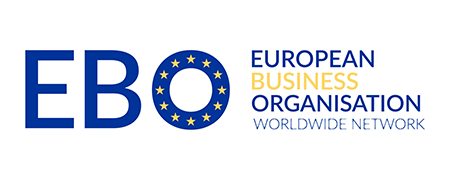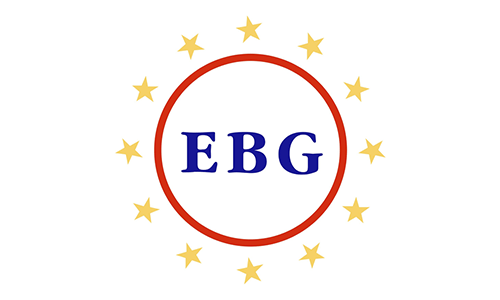EBG Federation
The EBG Federation, established in 1997, is a prominent not-for-profit organisation that provides support and collective representation to European businesses operating in India. Registered as a section 8 company under the Companies Act 2013, the EBG Federation has evolved into a respected industry advocacy group, recognised by both the Government of India and the European Commission. Supported by the Delegation of the European Union to India, the EBG Federation represents the 27 Member States of the European Union, the United Kingdom, accession countries, and partners in the European Economic Area (EEA). With chapters in Delhi, Mumbai, Bangalore, and Chennai, the EBG Federation currently boasts approximately 170 member companies. Fostering Indo-European Trade Relations: The primary objective of the EBG Federation is to actively support the growth of trade relations between India and Europe. Serving as a platform of support and representation, the EBG Federation ensures that the needs and interests of European businesses in India are effectively communicated to policy and decision makers. By acting as a forum for European corporates and entities, the EBG Federation provides a space for dialogue, cooperation, and understanding between all stakeholders.
Services
- Facilitating Connections: One of the key roles of the EBG Federation India is to facilitate connections between European businesses and various stakeholders in India. The federation acts as a bridge, providing a direct channel for businesses to engage with the Indian government, industry associations, and regulatory bodies. Through interactive meetings, seminars, and conferences, the EBG Federation India enables European companies to establish meaningful connections, explore collaboration prospects, and navigate the Indian business landscape more effectively.
- Engagement with European Embassies and High Commissions: The EBG Federation India recognises the importance of maintaining strong ties with European embassies and high commissions. These diplomatic missions play a crucial role in promoting bilateral trade and investment between Europe and India. By forging close working relationships with these institutions, the EBG Federation India ensures that the interests and concerns of European businesses are effectively conveyed to diplomatic channels. This collaboration enhances the federation's ability to advocate for the needs of European businesses and contribute to the development of favorable business environments. Business and Social Networking Forums: To help European businesses realise their full potential, the EBG Federation India provides a range of business and social networking forums. These forums serve as valuable platforms for professionals to connect, exchange ideas, and build relationships. Through events such as business conferences, industry-specific seminars, and social gatherings, the EBG Federation India fosters an environment conducive to meaningful networking. By facilitating interactions between professionals from various sectors and backgrounds, the federation creates opportunities for collaboration, knowledge-sharing, and the exploration of new business ventures. Close Working Relationship with the Delegation of the European Union in India: The EBG Federation India maintains a close working relationship with the Delegation of the European Union in India, which serves as the official representation of the European Union. This collaboration allows the federation to stay informed about the latest developments, policies, and initiatives pertaining to EU-India relations. By actively engaging with the delegation, the EBG Federation India stays at the forefront of emerging opportunities, policy changes, and trade-related advancements. This relationship enhances the federation's ability to represent the interests of European businesses effectively and contribute to the overall growth of EU-India business ties.
Advocacy
Advocacy and Engagement: One of the core functions of the EBG Federation is to advocate for European businesses in India. Through interactive meetings with the Indian industry and other relevant stakeholders, the EBG Federation enables European corporates to voice their values and needs. This engagement helps to foster a conducive business environment and facilitates greater collaboration between India and Europe. The EBG Federation recognises the importance of engaging with specific sectors to enable business growth and address sector-specific challenges. To achieve this, the federation has established individual sector committees in various industries such as Alcoholic Beverages, Automotive, Aviation, Banking & Financial Services, Chemicals & Petrochemicals, Defence, Energy (Oil & Gas and Power), Financial Services, FMCG, Healthcare, Homeland Security, ICT & Innovation, Logistics, Pharmaceuticals, Retail, and Telecommunications. These committees actively participate in shaping policy changes, supporting the growth of their respective sectors, and fostering an environment conducive to European businesses. 35 advocacy platforms with 100 participating companies.
Each chapter creates and manages their own committees (17 in total): (Link)
- Delhi
- Alcoholic Beverages
- Aviation
- Oil & Gas
- FMCG
- Healthcare
- Logistics
- Retail
- Telecommunication
- Financial Services
- Agriculture & Agrochemicals
- Power
- Railway
- Automotive
- Mumbai
- Chemicals & Petrochemicals
- Pharmaceuticals
- Banking
- Bengaluru
- ICT



